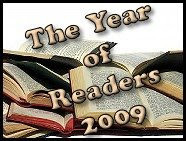I've been doing some thinking about author labels. By this I mean the terms used to describe authors as being within a subgroup, like 'Gay Author, Jewish Author, African American Author."
This started when I was reading The Flaneur: A Stroll Through the Paradoxes of Paris by Edmund White. White discusses this labeling while talking about the history of American authors from minority groups coming to Paris to write. He described how they, and certain gay, French authors, avoided being labeled in this fashion, and objected to the idea of being so labeled. He doesn't agree with this and proudly labels himself as a 'gay author'.
Before I read his thesis, I was firmly on the side against such labeling. I saw it as a means of limiting an author's audience, relegating their work to a small specialty shelf in the corner of the book store or library, where it won't encounter those not already interested in that community. Further, it has a history of being used to intentionally limit those books to a specific audience. The shelf I see most in bookstores is the 'African American Literature' section. How many white people do you see browsing that section? How many great books are hiding in there, waiting for a wider audience? A very few, and a lot.
White softened my view but I don't think he quite changed it. I liked The Flaneur a lot, and his pride in his identity helped to create the book. If all being labeled a 'gay author' meant was that he was not hiding the fact that he was gay, then I'm all for it. But I don't think that's what it means. It means he has given them an excuse to put his book in the special interest section, 'gay literature' or 'queer literature' or whatever label a bookstore uses to indicate that a book is for people who are interested in the genre. And then, people who are interested in, let's say Paris, the main subject of the book, won't find it.
In this interview, Tony Kushner handles the problem in an interesting way. He identifies as an 'American author' a 'Jewish author' and a 'gay author'. I like this. No one is just one thing. In my opinion Kushner is also a 'moved-to-New-York-and-it-will-always-be-with-him author' but that doesn't work well when typed.
By encouraging several different labels, Kushner makes it harder to relegate him to the specialty shelves. Kushner also points out that, when writers like Roth and Bellow were avoiding the label 'Jewish author', they were doing so because prejudice at the time was stronger, and to be a 'Jewish author' or some other author with a qualification applied to 'author' made them less of an 'American author' and thus to be taken less seriously. Perhaps it's still true, though I think less so.
The real problem these days isn't the authors labeling themselves. That's fine and positive. The problem is when the genre gets printed on the book, on the spine or near the bar code, and then the author gets stuck in their special section. Edmund White would respond that the author shouldn't try to hide who they are on account of this, and I agree. But that doesn't mean I have to like it.
Authors should describe themselves however they want, and the more authors produce quality writing within a given 'section' the more their work will stand out. In this day and age, with bookstores struggling, it's hard to tell the bookstores to take a step away from a practice that has long helped them stay profitable, but it'd be nice if they let the 'specialty' books out to play more often.
Tuesday, July 29, 2008
Author Labels
Subscribe to:
Post Comments (Atom)

No comments:
Post a Comment